MercoPress. South Atlantic News Agency
Tag: British Antarctic Survey
-
Tuesday, October 19th 2021 - 09:09 UTC
Humpback whales recovering on their feeding grounds in the South Atlantic
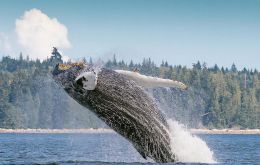
Humpback whale populations are strongly recovering on their feeding grounds in the South Atlantic, with over 24,543 whales now estimated to use polar waters in the Scotia Arc each summer.
-
Friday, October 8th 2021 - 09:10 UTC
Falklands' decisive in supplying Covid-19 vaccines to BAS Antarctic base Rothera
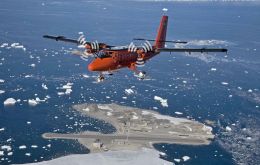
The BBC has reported that nine months after it was rolled out, the AstraZeneca Covid vaccine has finally reached the Antarctic. It was flown in, via the Falkland Islands, this week to immunize the 23 staff members who've been keeping the British Antarctic Survey, BAS, Rothera research base running through the polar winter.
-
Friday, October 1st 2021 - 09:12 UTC
FIG and BAS work together on forthcoming Antarctic summer research season
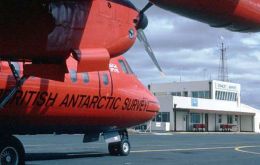
Despite the global pandemic, the strong strategic relationship between the Falkland Islands Government (FIG) and British Antarctic Survey (BAS) has gone from strength to strength. Following the success of the previous austral summer research season, the Falkland Islands is once again positioned to be the gateway for exciting and important Antarctic science over the next six to nine months.
-
Wednesday, August 18th 2021 - 09:12 UTC
Plastic pollution and ocean acidification reduce Antarctic krill development, BAS research
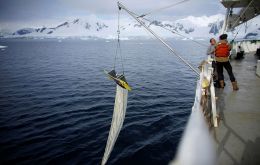
Plastic pollution combined with ocean acidification hinders the development of Antarctic krill in the Southern Ocean, research published in Marine Frontiers reveals.
-
Saturday, June 26th 2021 - 09:40 UTC
HMS Protector makes history: sails further north than any other Royal Navy ship
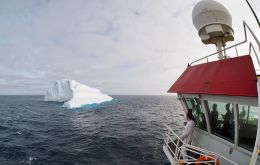
Icebreaker HMS Protector sailed closer to the North Pole than any other Royal Navy ship in history on her first patrol of the Arctic. The survey and research ship crunched her way through polar ice to within 1,050 kilometres of the top of the world as she gathered data about the ocean and environment.
-
Tuesday, June 22nd 2021 - 09:44 UTC
Mitigating the impact of longline fisheries on seabirds: the South Georgia experience

Seabird mortality in fisheries is a global problem and a major driver of the continued decline of many seabird populations. Unless appropriate mitigation is in place, longline fishing can cause high levels of seabird mortality.
-
Friday, April 23rd 2021 - 23:33 UTC
Royal Navy takes bomb disposal experts to South Georgia to remove Falklands War munitions

The Royal Navy's HMS Forth has taken bomb disposal specialists to South Georgia as part of a mission to protect the island's wildlife. The ten-day environmental mission set out to remove bombs and ordnance left behind during the Falkland Islands conflict involving the Argentine armed forces in 1982.
-
Tuesday, February 16th 2021 - 08:56 UTC
Discovery of life beneath Antarctica's ice shelves

Far underneath the ice shelves of the Antarctic, there’s more life than expected, finds a recent study in the journal Frontiers in Marine Science, published this week. During an exploratory survey, researchers drilled through 900 m of ice in the Filchner-Ronne Ice Shelf, situated on the South-Eastern Weddell Sea.
-
Friday, February 12th 2021 - 09:18 UTC
RRS Sir David Attenborough begins sea trials around the Irish Sea

Falklands flagged RRS Sir David Attenborough will spend the next two weeks testing anchoring, maneuvering, and dynamic positioning, as well as other engineering systems, such as freshwater making, that cannot be tested while in port. The trials will primarily take place in and around the Irish Sea, although some may take place on the West Coast of Scotland and the Celtic Sea.
-
Monday, January 25th 2021 - 09:07 UTC
Work starts at Antarctica's Rothera Research Station Discovery Building

The next stage of building a scientific support facility in Antarctica has started and to avoid the risk of introducing COVID-19 to the British Antarctic Survey’s (BAS) Rothera Research Station, the construction team spent two weeks in quarantine and had three Covid-19 tests prior to making the 11,000-kilometer voyage by ship.
